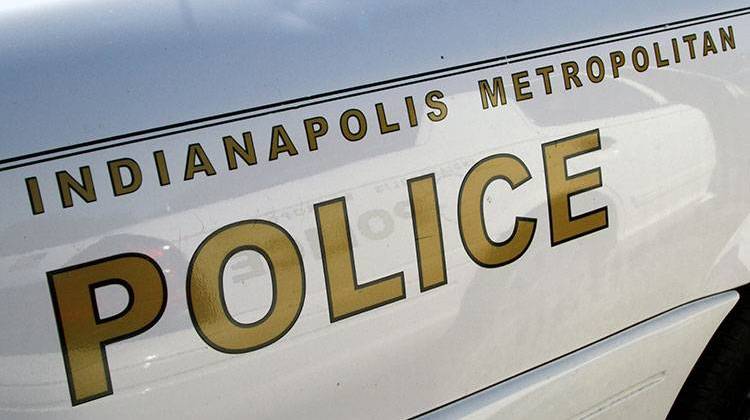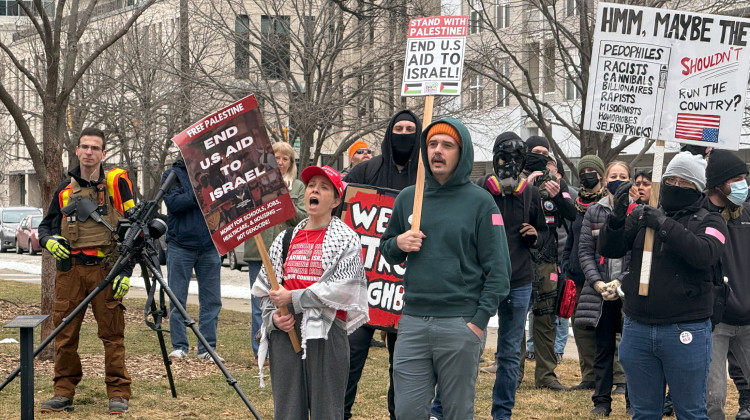
The program, launched in 2017, is a response to concerns that police officers are often unprepared and unequipped to interact with citizens suffering from mental health and behavioral issues.
FILE: Doug Jaggers/WFYITwo years ago the Indianapolis Metropolitan Police Department launched a program around Mobile Crisis Assistance Teams, or MCAT – first responders who are specially-trained to handle people with mental health, behavioral or substance abuse issues.
City officials on Wednesday announced IU researchers will conduct a year-long study to evaluate its effectiveness.
The program (referred to as MCAT-BHU because of its pairing with a Behavioral Health Unit) is part of Mayor Joe Hogsett’s larger push for criminal justice reform. It’s a response to concerns that police officers are often unprepared and unequipped to interact with citizens suffering from mental health and behavioral issues, which can lead to unnecessary – and expensive – arrests and hospital visits.
Since the pilot program launched, MCAT-BHU has expanded to serve IMPD's North, East, Downtown, and Southeast districts.
IUPUI researchers released a report on the program last year. It showed positive early results, but noted that more research is needed. And it found gaps in support that are sometimes caused by state-level, systemic problems.
“There’s no question that leading-edge programs like MCAT can have a tremendously positive impact on our city as a whole," wrote Tom Guevara, director of the Indiana University Public Policy Institute. "We found, however, that a lack of outpatient treatment options and other barriers to expanding the program must be addressed in order to maximize the impact of the MCAT helping to address serious mental illness and substance abuse problems for Indianapolis.”
The new study comes from the IU Center for Health and Justice Research, or CHJR. The city says researchers will look at a number of metrics, including MCAT-BHU's effect on the use of emergency medical services, arrest rates, treatment engagement and response times.
“This project will help us better understand the most effective methods for diverting people with substance use and mental health disorders away from the criminal justice system and into the treatment they truly need," says CHJR director Brad Ray, "while providing insight into what happens to those people following police encounters.”
The group will also conduct a cost-benefit analysis of the program.
Funding for the research comes in the form of a $500,000 grant, from Houston-based philanthropy group Arnold Ventures.
 DONATE
DONATE








 Support WFYI. We can't do it without you.
Support WFYI. We can't do it without you.